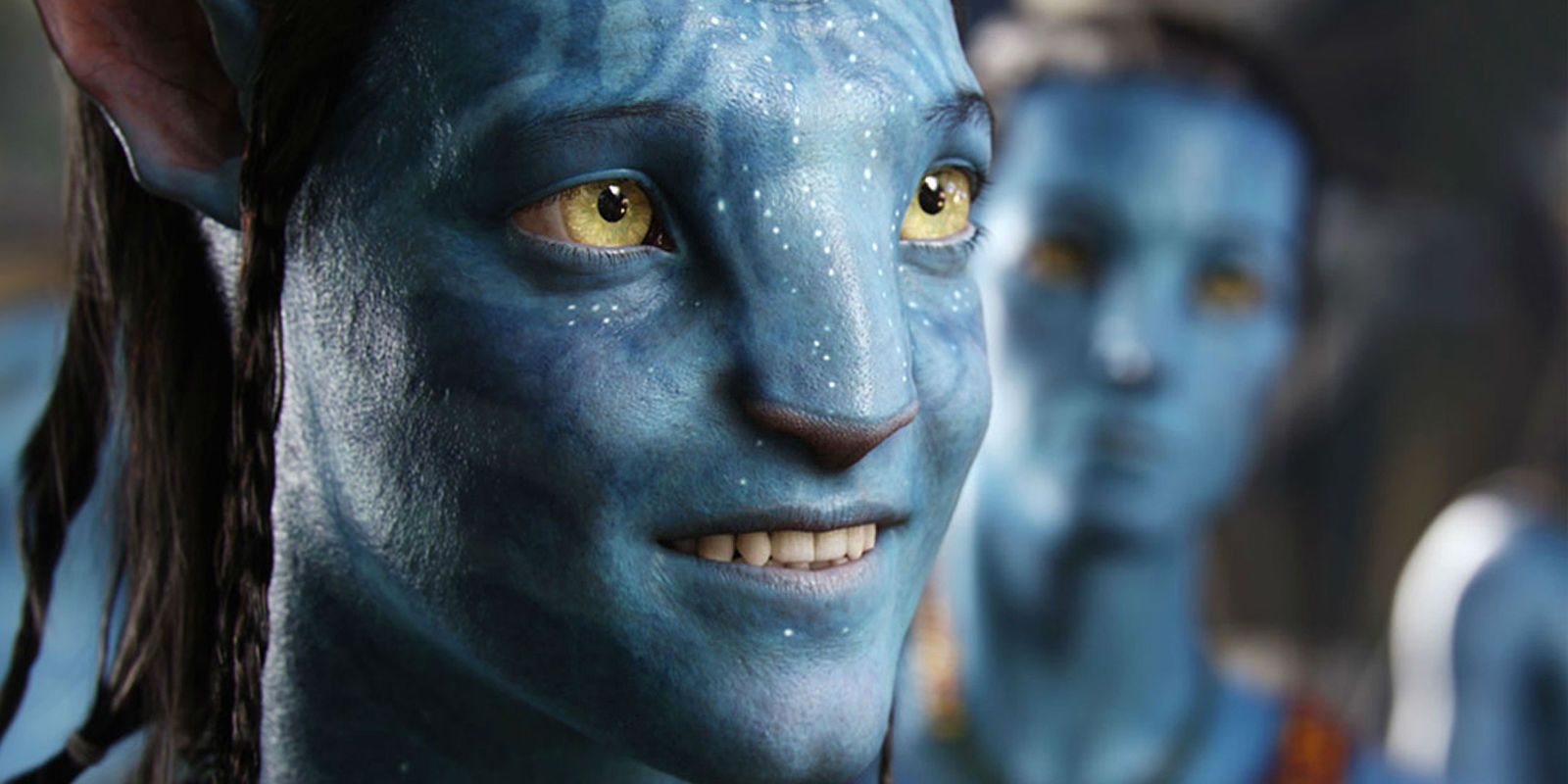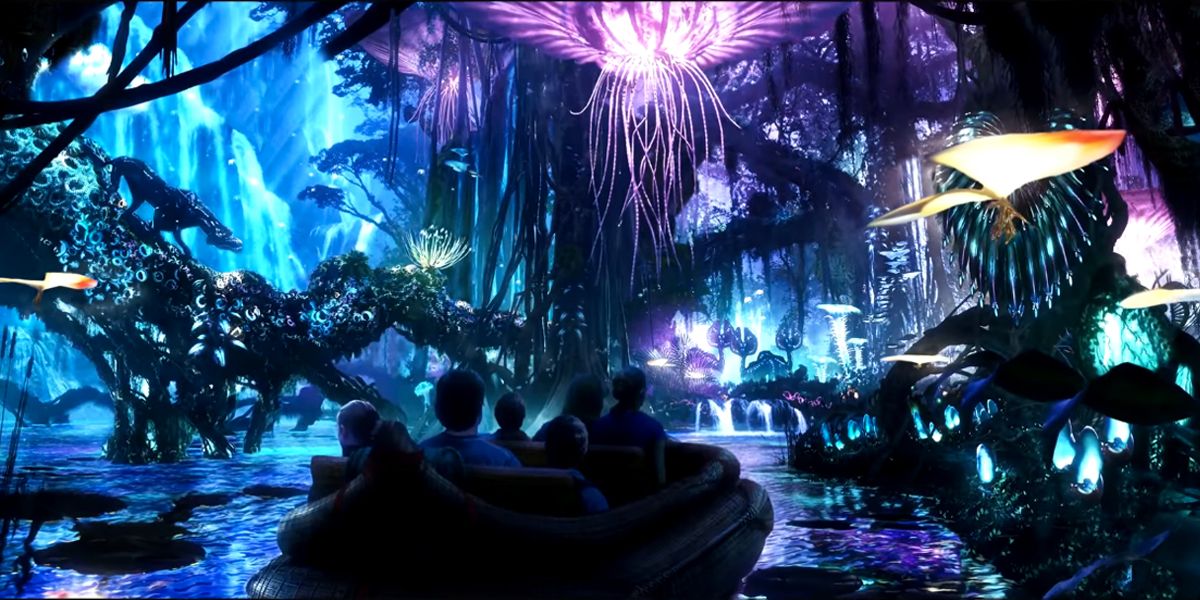While 2009 was only eight years ago, it's already getting hard to recall the stratospheric cultural phenomenon that surrounded James Cameron’s groundbreaking sci-fi epic Avatar upon its release. Many had doubted that the director’s latest experiment in melding technological advancement with grand-scale storytelling would pay off, especially as the budget ballooned to $237m, making it the most expensive film ever made at the time. Of course, as Titanic proved, it’s never safe to bet against a Cameron movie making staggering amounts of money.
Avatar went on to gross over $2.7bn and remains the highest grossing film of all time - a record not even Star Wars: The Force Awakens could snatch from the director (Titanic sits comfortably at number two). A barrage of Oscar nominations followed, and it seemed inevitable that Cameron would follow up the success with a few sequels further exploring the lush world of Pandora.
We’re now in 2017, and Cameron just confirmed that a 2018 release date for Avatar 2 "is not happening". Sequels had been planned with original release dates of December 2014 and 2015. Obviously, that didn't happen, and soon the dates were pushed back year after year, until now, with Cameron confessing that there's no firm release date for the next four movies. It’s unknown how big the budget for these films is, as well as the amount of money that will already have been spent just trying to get it into production. This planned saga is undoubtedly an epic undertaking, and keeping in line with Cameron’s ambitions as a film-maker. While the director has a proud history of proving critics and the film world wrong, it now feels as though the groundbreaking leader of the zeitgeist is playing catch-up to an industry that’s moved in since Avatar faded from cinemas.
The past decade of Hollywood has seen a major cultural shift in terms of what studios make and the audiences they’re aiming for. Franchises are ten-a-penny, and the expanded universe mold pioneered by Marvel Studios is being copied by practically every studio with a well-known IP and a major budget. Star Wars has returned to the epicenter of geekdom and dominated the landscape in ways that not even the prequels managed. Disney now owns both Marvel and Lucasfilm, and has put in place a well-oiled machine of brand expansion that saw the studio gross over $7bn last year alone.
Avatar, for all its achievements, is not something that has retained its relevance in film or pop culture circles. Even the critics who raved about it upon release have cooled their opinions, viewing it more as a technical and visual marvel than a cohesive film experience. The movie had its fans. but it never held onto them in the way something like Star Wars does. Kids aren’t dressing up as Na’vi for Halloween, nor are there many fans writing fan-fiction or engaging in feverish discussions like the Harry Potter community enjoys. Even Cameron’s previous effort, Titanic, held onto its audience for longer, in large part because its central romance proved appealing to a primarily female audience. The world of Pandora was a visual feast and painstakingly filled with imagined flora and fauna, yet it offered little of substance for fans to cling to. Being the leader in technological advancement is excellent for marketing, but how do you retain that when every other film is doing it?
The CGI and motion-capture of Avatar was not a new development in Hollywood – Andy Serkis had made his name with The Lord of the Rings by then – but it did show what the technology was fully capable of, and legitimized the oft-maligned practice of 3D films to an audience who had little experience with it. Now, it’s simply another tool of the blockbuster industry. Cameron has always been at the forefront of VFX technology, and it’s encouraging to see a big-name director continue to embrace the future while so many others fear it. Sadly, that may not be enough for audiences any more - not when big-budget special-effects epics are a regular feature of the ever-ending summer blockbuster season. Disney can churn out these films at an astoundingly efficient rate. A release date is set before filming even begins, and almost without fail that release date is met. Cameron’s work is labor-intensive and prone to change with the times, especially as the technology evolves at a hectic rate. The studio may be willing to wait for it, but moviegoing audiences could be forgiven for having moved on.
U.S. audiences are no longer the sole focus of the industry, as the Chinese market has grown to previously unseen levels of profit and has Hollywood carefully retooling big budget projects in an effort to please China's censors and audiences alike. In this aspect, Avatar may have an upper hand over much of its competition; upon its release in China, the film grossed $204m, setting a then-record for an American film in the country. The Chinese box office is the golden goose of Hollywood centred film-making, with deals being struck by studios to film in the country, feature well-known Chinese actors and product-placement, and insert plot developments that cater to the country’s interests. Avatar is the kind of big crowd-pleasing film that’s not reliant on country-specific dialogue or cultural beats, and as such can be universally enjoyed, which would certainly give its sequels in edge in international markets.
Though the Avatar franchise's prospects may look uncertain, it's worth remembering that betting against James Cameron has made many a fool over the past few decades. Producers were unwilling to invest in the scrappy new director when he pitched The Terminator, which went on to gross more than 12 times its budget at the box office. There were fears that Cameron would ruin the legacy of Ridley Scott’s Alien with his sequel, but Aliens made over $131m and even saw Sigourney Weaver score an Oscar nomination. The industry wrote off Titanic as a failed folly of Cameron’s ego after production costs soared and shooting time increased, but then it made more money than any film before or after - until Avatar came along.
While his process is exhaustive and inefficient, James Cameron makes more money than most directors or studios can ever dream of, and that will keep the industry returning to his door, even as delays increase. Avatar, for better or worse, is pure, undistilled Cameron, and the sequels remain his best chance of retaining his crown as King of Hollywood.
For the first time since its release, Avatar is returning to the cultural fold, albeit not in movie form. Ubisoft announced this year that they are partnering with Fox Interactive and Lightstorm Entertainment to create an Avatar video game, and Disney are set to open Pandora – The World of Avatar at Animal, an expansive theme-park experience at Animal Kingdom in Florida. These seem like the best options for the world Cameron has built: Opportunities to explore a lush, vibrant world without the baggage of forgettable characters or predictable plot. Early word from the park is positive, but will it be enough to keep audiences enticed for future movies? While the odds aren’t in Cameron’s favor, it’s a bet many are still unwilling to make against Hollywood’s most iconic money-making director.



